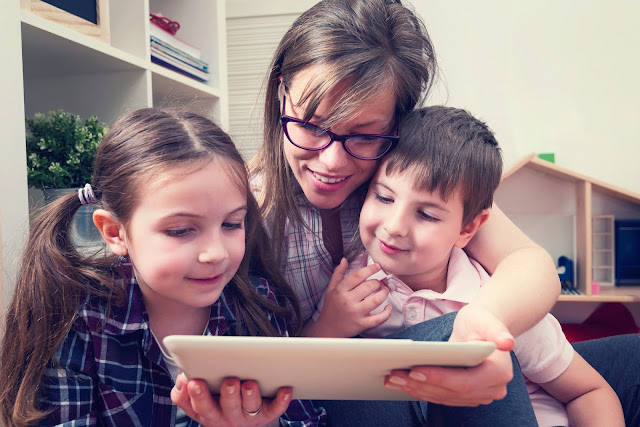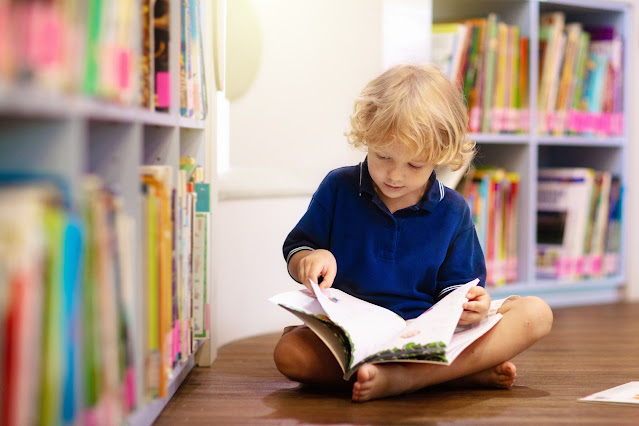Understanding the shift in literacy dynamics is crucial in the current digital era. The advent of technology has notably influenced the ways individuals consume and interact with information. Reading and writing practices are evolving, as are the skills required to be a literate individual.
Digital literacy, a term often thrown around in discussions about modern education, now stands beside traditional literacy in its importance. Striking a balance between screen time and classic reading and writing skills has become a pressing concern for educators, parents, and students.
The Shift To Digital Literacy
Traditional literacy skills, including reading and writing, form the bedrock of our educational systems. But with the advent of the digital age, these foundational skills aren't sufficient on their own. Digital literacy, encompassing the ability to comprehend and utilize information from numerous digital sources, has emerged as an essential addition. This newer form of literacy necessitates competencies like typing, online research, and digital communication.
Yet this shift doesn't mean we should cast aside traditional literacy skills. Rather, there is a need to strike a balance between digital literacy and traditional literacy. These two forms of literacy aren't mutually exclusive but complementary, both playing a critical role in comprehensive literacy in the 21st century.
Benefits Of Balanced Literacy
Achieving a balance between traditional and digital literacy offers a range of benefits. It allows individuals to function efficiently in a technologically advanced world while retaining fundamental literacy skills.
Furthermore, it fosters the development of a more comprehensive worldview and promotes critical thinking, as individuals exposed to diverse sources of information are more likely to have an enriched understanding of the world around them.
The Role Of Educators And Parents
In the shift towards balanced literacy, educators and parents play pivotal roles. Educators can incorporate digital tools into their classrooms in a way that complements, rather than replaces, traditional reading and writing. This exposure to various literacy forms aids in developing well-rounded, versatile students.
On the other hand, parents can play their part by setting boundaries on screen time and promoting offline, traditional literacy activities. It's imperative to teach a child to write and read, fostering their engagement in these exercises to nurture a love for traditional literacy alongside the digital skills they acquire in school. This joint effort helps to ensure a smooth transition towards balanced literacy in the digital age.
Balancing Screen Time And Traditional Literacy
As mentioned, while embracing digital literacy, it's vital to maintain a balanced routine. Below are six tried and tested ways to harmonize screen time with good old-fashioned reading and writing.
1. Set Clear Boundaries For Screen Time
First and foremost, establish clear rules around when and how long screens can be used. Using screens as a pacifier might be tempting, but remember, moderation is key. Be consistent and hold firm to these limits. This consistency ensures that screens don't consume too much of a child's day, freeing time for traditional literacy activities.
2. Use Technology To Enhance Traditional Literacy
Using technology to boost traditional literacy can be a game changer in balancing screen time and reading for kids. It's about tapping into e-books, audiobooks, or literacy-focused apps to offer a modern approach to reading and writing. This clever use of technology can make literacy activities more engaging, reducing the allure of passive screen time.
Additionally, integrating educational content within screen time is key. Choosing programs, games, or apps that foster learning can turn screen time into a productive activity. This way, kids can boost their reading and writing skills even while on their devices.
3. Make Reading A Daily Habit
Making reading a daily habit is crucial to promote a balance between screen time and reading for kids. It's all about reserving a set time each day, perhaps before bed, to dive into a good book. This practice nurtures a passion for reading, expands vocabulary, and enhances cognitive skills.
Additionally, crafting a reading-friendly environment can lure kids away from screens. A comfortable reading corner, filled with an array of books, can be enticing. It provides a haven where kids can enjoy reading, encouraging a healthy balance between the digital and traditional literacy worlds.
4. Involve Kids in Real-Life Literacy Activities
Make literacy an integral part of everyday life. Get your kids involved in activities that promote reading and writing. For example, let them help with the grocery list or have them write 'thank you' notes. These practical experiences build literacy skills and demonstrate their real-world applications.
5. Encourage Creative Writing
Screen time can be balanced by fostering your child's creative writing skills. Encourage them to write daily, maybe through keeping a journal or creating their own stories. This practice helps enhance their vocabulary and grammar skills and fuels their imagination, providing a productive alternative to screen time.
6. Role Model Good Habits
Bear in mind kids often mirror adults' behavior. By visibly enjoying a balance between screen time and traditional literacy activities, you're setting a valuable example. Let them see you absorbed in a book or busy writing in a journal, demonstrating that this balance is not only feasible but also enjoyable.
Creating A Future Of Balanced Literacy
Literacy in the digital age demands a careful blend of traditional and digital literacy skills. It's a dynamic process requiring continuous efforts from educators, parents, and learners.
A balanced literacy approach prepares individuals for a digitally advanced future and preserves the importance of foundational reading and writing skills. It's a delicate but necessary dance, one that promises a future of informed and versatile individuals.

